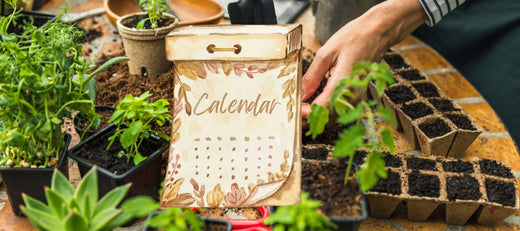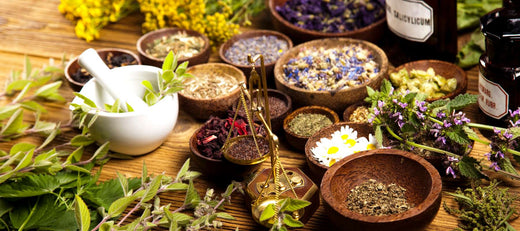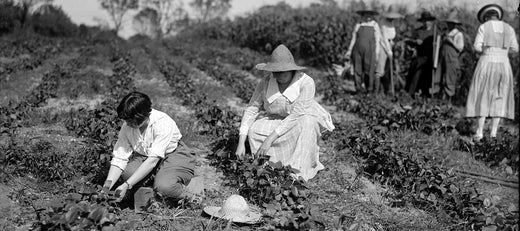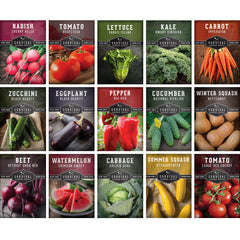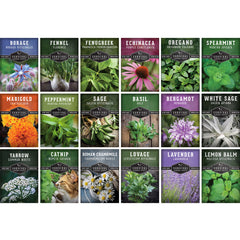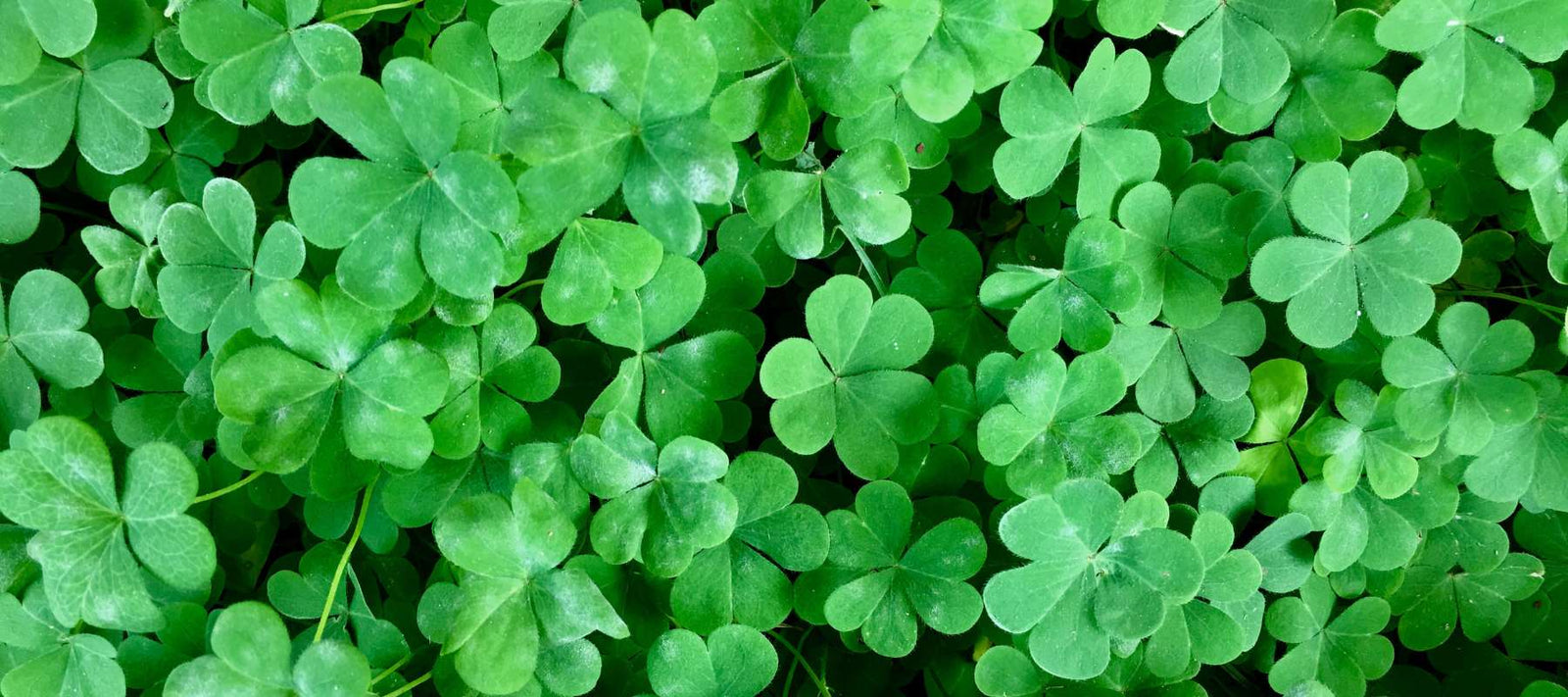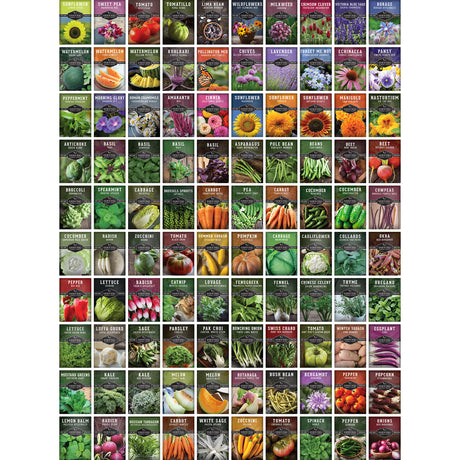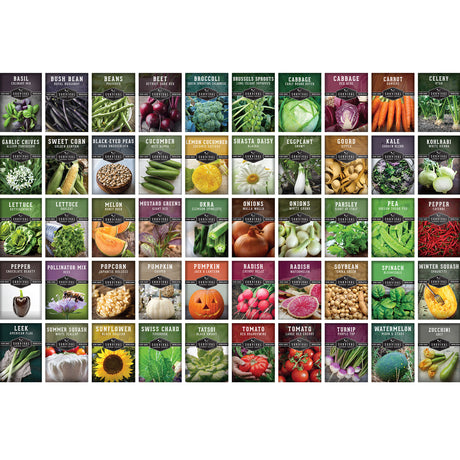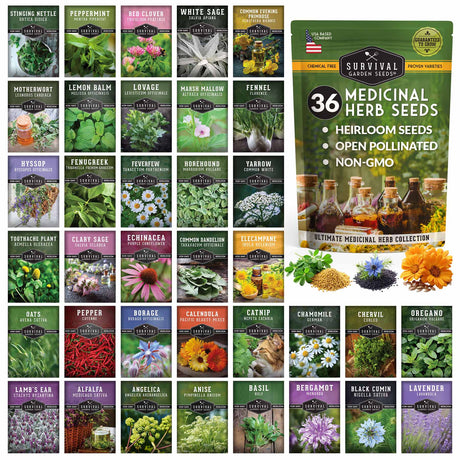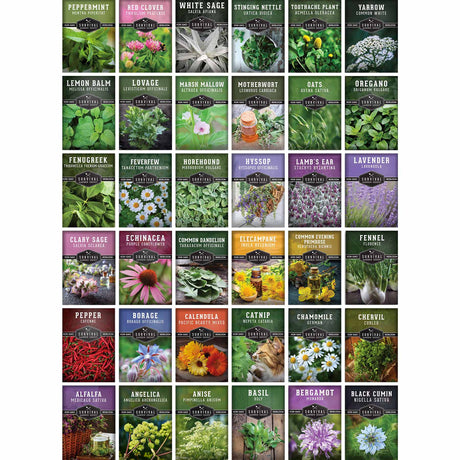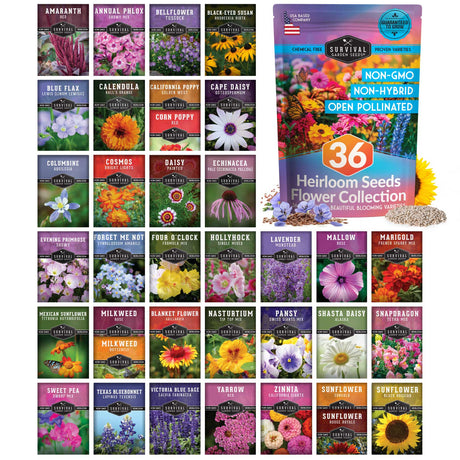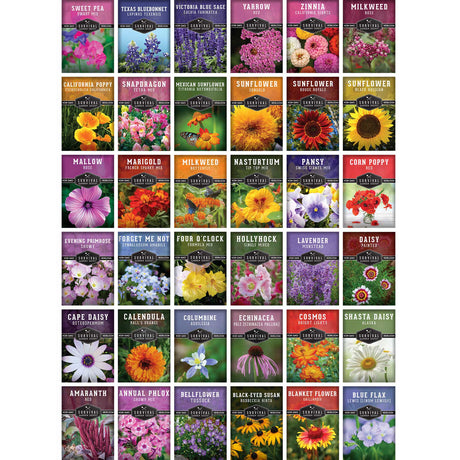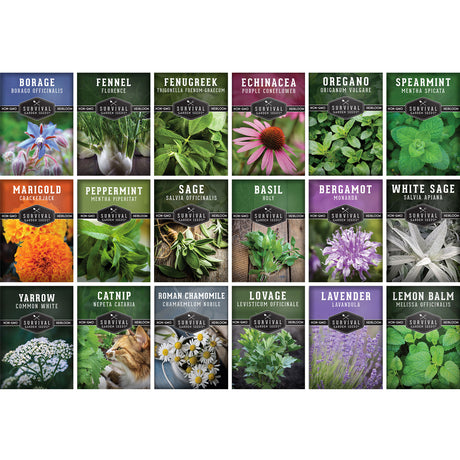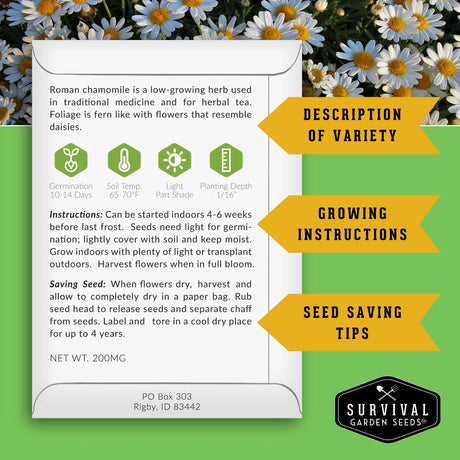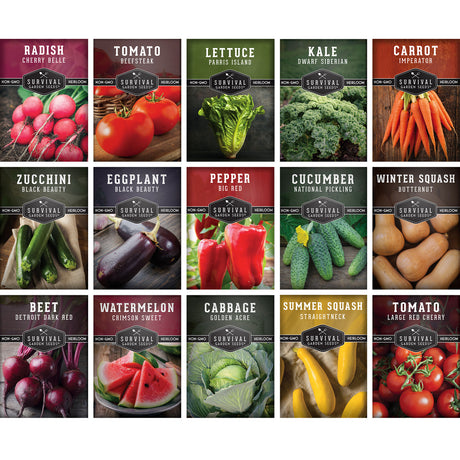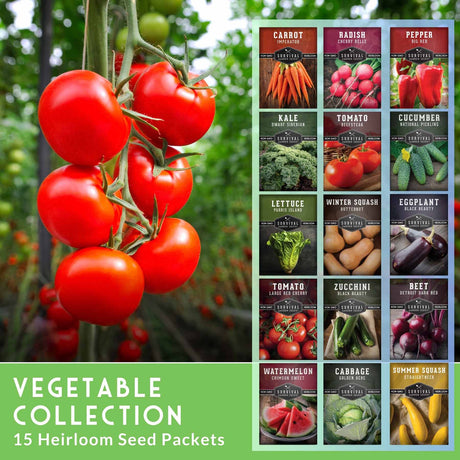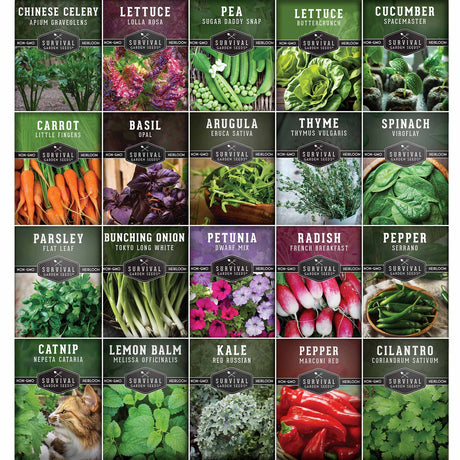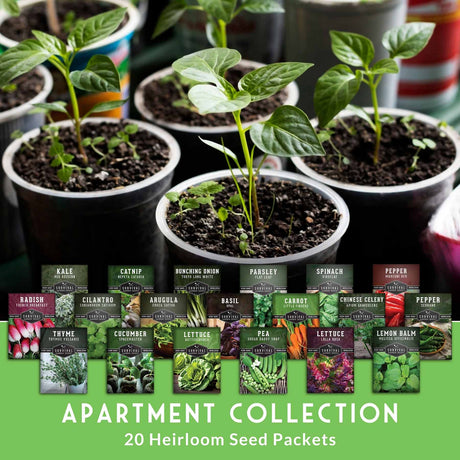For the most part, the choices we make in our seed catalog make sense to almost anyone interested in gardening. When the ordinary person thinks about what seeds are good for a survival garden, they probably think of fruits and vegetables, herbs for cooking and medicines, and grain seeds. Some gardeners also consider companion plants or flowers to bring pollinators to the garden. But there are a few of our seeds that get some raised eyebrows, like our clover seeds. You might be surprised to learn about how helpful clover can be in the garden. It also is a nutritionally rich source of chlorophyll and other nutrients, making it a good multipurpose crop to add to your garden.
Types of Clover Seeds
At Survival Garden Seeds, we currently carry three varieties of clover seeds for sale and one clover seed collection:- Dutch white clover seed. This is the clover that most people think of when they think of clover. You may see it used as a lawn alternative or mixed in with turf grass. That’s because it’s an excellent, low-maintenance ground cover that can enrich the soil without out-competing other plants.
- Crimson clover seed. This pretty clover is an annual clover that has cone-shaped crimson-red flowers that are quite pretty and mix well into any garden setting. It can be chopped down and used as green manure to enrich the soil. It’s also a good silage and forage crop.
- Clover microgreens seed. If you’re looking for a great starter microgreen, you can’t beat clover! It’s quick growing and one of the easiest to grow. It has a mild, sweet flavor that makes it a great addition to salads and sandwiches. Add clover microgreens to smoothies for a little extra oomph.
- Clover seed collection. For those who can’t decide which clover they like best, or for those who want to use different varieties for different spaces.

Another variety to consider is Red Clover. Red clover is a short-lived perennial variety that can sometimes be confused with crimson clover. Despite its name, this clover has dark pink flowers with a rounded shape, compared to crimson clover’s vibrant red conical blooms. Red clover has traditionally been used to help with arthritis, circulation, and menopause symptoms. It should be used with caution as it can interact with blood thinners.
Clover Naturally Improves Soil Quality
Clover can save you money and improve your garden and lawn soil in a natural, sustainable way that reduces your need for soil amendments. It’s an excellent choice for using as a ground cover any time your soil would otherwise be idle. By planting clover, you keep your soil covered, reducing nutrient loss. The roots of clover hold onto the soil, reducing erosion and keeping the soil structure nice and airy, not compacted and hard. Clover also keeps the soil moist while it’s growing and returns nutrients to the soil when it is cut and left to decompose as green manure.
Using Clover as Green Manure

Another benefit of clover is increasing the nitrogen content of your soil. As a legume, clover is a member of the same plant family as beans, lentils, peanuts, and peas. All of these plants are useful for their ability to “fix nitrogen” into the soil. That means these plants convert the abundant nitrogen in the air into a usable form. The best way to take advantage of this nitrogen fixation is by cutting the plants down when they flower - the time when nitrogen fixation is at its peak. The trapped nitrogen in the plant will then break down into the soil and the surrounding plants can then also tap into that nitrogen.
Clover to Improve Biodiversity
Some pollinators love clover flowers, especially honeybees! Allowing your clover to flower lets it reach peak nitrogen levels, and it also attracts these helping insects into your garden. If you’ve got an apiary, having a patch of clover provides an excellent source for your honey bees to gather from. Clover honey is well known for being a delicious, clean-tasting honey. It’s also a good source of nutrition for other pollinators, like butterflies and certain beetles.
Biodiversity includes the tiny inhabitants of the soil, too. Healthy soil is living soil, and clover roots produce complex interactions within the soil on a microbial level. These interactions improve the number and type of microorganisms in your garden, creating a more vibrant ecosystem that is thriving and productive.
Clover Lawns
If you’re frustrated with clover popping up in your lawn, we’d like to invite you to think twice before breaking out expensive (and potentially harmful) herbicides to try and kill it. This humble plant can improve your lawn quality with very little work required on your part. Using clover as a green manure is an excellent way to cut down on the water and nutrient needs of traditional turf lawns. The key is to cut your grass without removing the clippings. t the clippings decompose right into the lawn. It doesn’t take long, and the nitrogen returns to the soil, improving the health of all the plants. This is why some people convert entirely to clover lawns. Other people prefer a mix of clover and grass. Either way, it’s nice to see that some people are starting to see the pros of leaving clover alone or even adding it to the garden.
Clover Is Edible
Microgreens aren’t the only way you can enjoy clover. Clover is entirely edible and full of healthy vitamins and minerals. It has a taste very similar to alfalfa. The leaves can be enjoyed like any other green leafy vegetable, either fresh or cooked. The flowers can make a pretty addition to your salad or baked goods. You can also use the flowers as a delicious tea with notes of honey.
How to Grow Clover Seeds
Direct sow white or crimson clover seeds anytime the soil is warm by broadcasting them and tamping them in to ensure good soil-to-seed contact. Late summer and early fall sowing will allow your clover to flower in spring. If you sow clover seeds when it is very warm, summer heat may prevent continuous blooming, but your soil will still benefit from the addition of this useful crop. Mow or chop as needed once established, allowing the clippings to break down as green manure.
Survival Garden Seeds Clover Seeds
If you’re curious about trying clover in your garden, you still might be a little wary. You may have experienced the frustration of having a plant that reverted to a parent type that looks nothing like Dutch White Clover. Our Dutch White Clover is just that. It will breed true and produce more Dutch White Clover. Our heirloom seeds are exactly the variety we say they are. Survival Garden Seed clover seed packets are also the perfect size for small-scale projects, like covering a raised bed or a small garden plot. We monitor germination rates carefully to ensure that each batch that comes in meets our strict requirements. That’s why we can stand by our seeds and guarantee germination.


